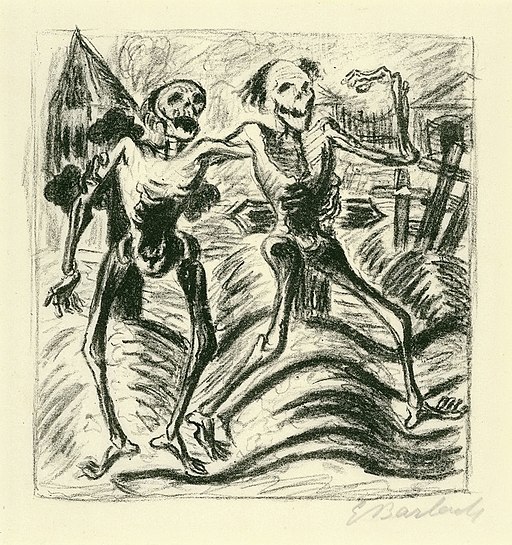
On finding pleasure in Literature’s Macabre
Last week we published an article on this site on the subject of why we enjoy a story to inspire fear. Here, another of our tutors offers a few examples…
Ahhh, the macabre! A genre, an era, a defining moment in Gothic history… all of the above or none, depending on the way you see it. The Merriam-Webster dictionary defines the word “macabre” as something that “involves death or violence in a way that is strange, frightening, or unpleasant.” It is also defined as “having death as a subject;” “dwelling on the gruesome;” and, “tending to produce horror in a beholder.” These would definitely be the technical terms of the macabre; but what about the provoking themes it involves that so evoke feelings of pleasure in the unknown, and the gore, while all the same providing the beholder with food for thought and inviting them to analyse what they see or read? The macabre is indeed shocking, but there is nothing better than to shock someone into discovering a new opinion, concept or idea within the style of writing and far beyond.
It is true that we read for pleasure. However, people who truly enjoy reading will pause for moments in their reading to really understand what it is they read; and for the dreamers out there, they will visualise it, conjure up images, be the most likely to stare at the ceiling trying to figure out the emotional state of the writer at the time of the fiction’s conception. In my view, that stands largely true when talking about the macabre – or love for that matter, even though I do believe the macabre is less fluid than love, hence a whole different matter. For all of you who enjoy reading this gruesome, morbid and frightful genre, here are 5 books to devour:
1. Dracula: Well, this is a classic. Everybody knows Dracula. The reason why I am including it here is because for a time it was the definition of Gothic and macabre. It may not be scary in the least nowadays, especially with everything that’s happening in the world, but you do learn something about the origins of the genre through Stoker’s masterpiece. You also get to read about “the real thing” and not the way vampires are portrayed now.
2. Frankenstein: If this was any other name, my auto-correct would probably underline it with a red squiggly line. But, similar to novel no. 1., Frankenstein’s legacy will live on to allow future generations to experience Mary Shelley’s vast sense of the macabre.
3. It: Could it really be a complete list without a Stephen King novel? I think not, and I hope others do too. Having seen the (original) movie before reading the book (I know, I know, but I was at a very tender age and I happened upon the movie on the TV. I couldn’t get away, and didn’t sleep for a long time after that), I see why a lot of people are afraid of clowns. Who wouldn’t be after having watched that? It was the ghastly atmosphere, the appalling protagonist, and the naïve rest of the world that so much drew me into King’s masterpiece, and that is why I am including it in my list. Anyone disagreeing, please raise your hand!
4. We Have Always Lived in the Castle: An unreliable narrator, murder, black humour; Can’t ask for more now, can I? I love it when there are disturbed minds in a book and they think they have it together. Who doesn’t love a good old twisted mind with a dose of mystery and a lot of Gothic gore? Who, I ask you?
5. Perfume: The Story of a Murderer: Pathos, indulgence in one’s passion, and maddening downfall leading to murder. Is there any reason not to include this here? The reader has ample material to analyse while reading Süskind’s work, and to reflect on their own passions and what is possible when sensual depravity is combined with one’s psyche.
If you’ve never tried the cold waters of this genre, perhaps this time of year is the time, with Halloween just a few dark nights away.